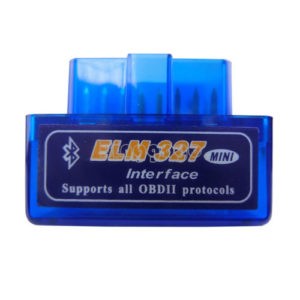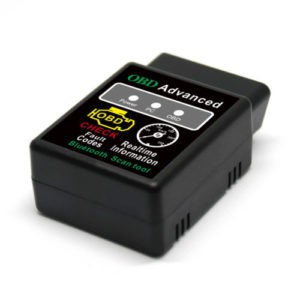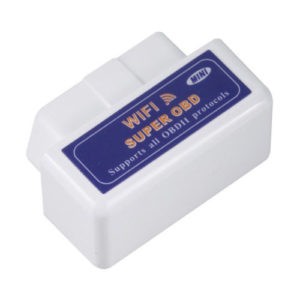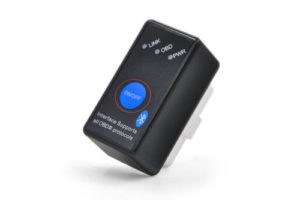OBDII dongles have revolutionized car diagnostics, providing a simple and affordable way to access vehicle data. But with a plethora of options available, choosing the right dongle can be overwhelming. This guide will delve into the world of OBDII dongles, exploring compatibility, connection types, and crucial factors to consider before making a purchase. We’ll also highlight recommended models and those to avoid, ensuring you get a reliable dongle that meets your needs.
Understanding OBDII Dongle Connection Types
OBDII dongles act as a bridge between your car’s computer and a diagnostic app on your smartphone or tablet. The connection type determines compatibility and performance. Here’s a breakdown of common types:
- Wi-Fi: These dongles create a wireless network that your device connects to. While widely available, they can sometimes disrupt mobile internet connections.
- Bluetooth (Classic): Versions 1.x, 2.x, and 3.x are generally faster than Bluetooth LE and widely supported by Android devices. However, they may experience connectivity issues with some Android devices already paired with multiple Bluetooth accessories.
- Bluetooth Low Energy (LE) 4.0 and above: These dongles offer lower power consumption and simpler pairing, making them ideal for iOS devices. While generally slower than Classic Bluetooth, they provide a stable connection.
- Bluetooth MFi: This is classic Bluetooth certified by Apple for use with iPhones and iPads. These dongles ensure seamless iOS integration but are less common and more expensive.
- USB: These are not commonly supported by most diagnostic apps.
OBDII Dongles for iOS and Android
iOS (iPhone/iPad): Car diagnostic apps on iOS primarily support Bluetooth LE (4.0), Wi-Fi, and Bluetooth MFi adapters. Due to iOS limitations, classic Bluetooth (versions 1.x, 2.x, 3.x) will not work with iPhones or iPads. For optimal performance and ease of use, Bluetooth LE is recommended. Bluetooth MFi offers top-tier performance but comes at a premium price. Wi-Fi adapters are an option but can lead to connectivity challenges.
Android: Android offers broader compatibility, supporting classic Bluetooth, Bluetooth LE, and Wi-Fi adapters. Classic Bluetooth tends to provide the fastest data transfer speeds for Android. Bluetooth LE offers a reliable connection and lower power consumption. Wi-Fi, while functional, might present connection stability issues.
Choosing a Quality OBDII Dongle: Beyond Version Numbers
While ELM327 is a common chip used in OBDII dongles, focusing solely on version numbers can be misleading. Performance varies significantly, with “good” and “bad” adapters existing across all versions.
Signs of a “Bad” OBDII Dongle:
- Unreliable Connection: Frequent disconnections, freezing, or spontaneous rebooting.
- Inconsistent Data: Inability to read all parameters, missing data packets, or displaying incorrect information.
- Limited Functionality: Only supporting a subset of commands or protocols, hindering access to certain vehicle systems.
- Compatibility Issues: Hard-coded for specific ECU addresses, limiting functionality with different vehicles.
- Potential Harm: In rare cases, faulty dongles can short-circuit or disrupt the vehicle’s onboard network, potentially causing engine problems.
 Bad OBD2 Dongle Examples
Bad OBD2 Dongle Examples Bad OBD2 Dongle Examples
Bad OBD2 Dongle Examples Bad OBD2 Dongle Examples
Bad OBD2 Dongle Examples Bad OBD2 Dongle Examples
Bad OBD2 Dongle Examples Bad OBD2 Dongle Examples
Bad OBD2 Dongle Examples
Recommended OBDII Dongles
- OBDLink MX+ (Bluetooth MFi): High-end option with excellent performance for both iOS and Android.
- OBDLink CX (Bluetooth LE): A great choice for iOS and Android users seeking reliable performance and a large memory buffer.
- vLinker MC+, FS, MS: Reliable options with Bluetooth LE (MC+) and Bluetooth MFi (FS, MS) versions available. Regular firmware updates ensure optimal performance.
- Vgate iCar Pro 2S: A solid performer compatible with all operating systems.
OBDII Dongles to Avoid
- xTool adapters: Not compatible with standard ELM327 software.
- Wired (USB, COM) Adapters: Most wireless diagnostic apps don’t support these.
- Dongles with “mini” in the name: Often associated with poor quality.
- Cheap Dongles (Under $10): Performance is often compromised.
- Specific Brands: KONNWEI, Micro Mechanic, THINMI.COM, and KUULAA have reported quality control issues.
Conclusion
Selecting the right OBDII dongle is paramount for accurate vehicle diagnostics. By understanding connection types, compatibility, and common pitfalls, you can confidently choose a reliable device. Prioritize reputable brands with proven performance and ensure compatibility with your chosen diagnostic app and device’s operating system. This will enable you to unlock valuable insights into your car’s health and performance.
